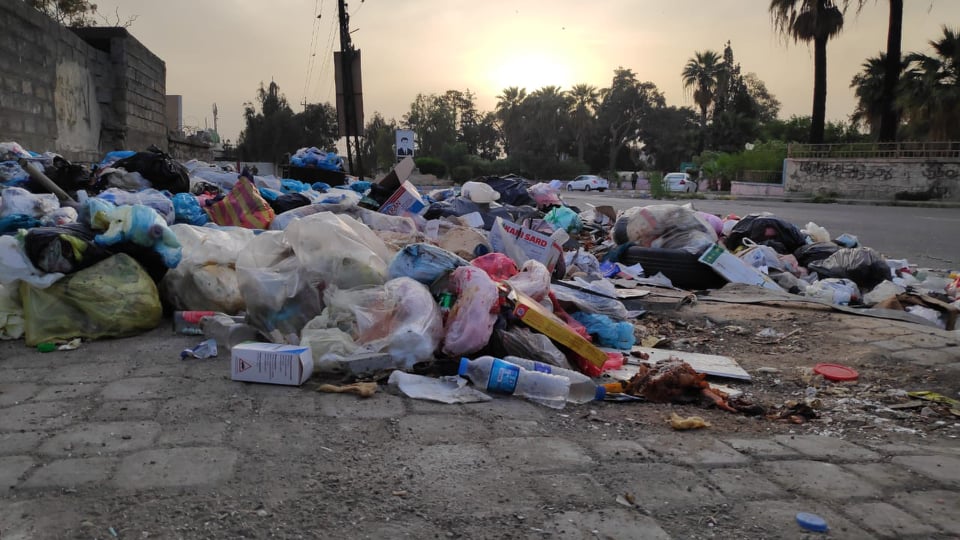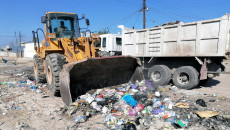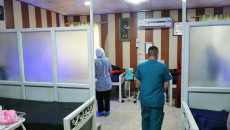Kirkuk municipality in charge of waste collection apologizes for Kirkuk people as it has come to stop its services from middle of April due to lack of adequate funding, local officials said.
Piles of garbage have mounted all over the northern oil-rich city of Kirkuk which suffers from absence of regular garbage collection since last year.
Faraidoon Zanga, head of Kirkuk municipality said since April 15, they have almost stooped completely. "We headed to the governor and told him this little amount is not enough to clean the entire city from garbage and waste."
"We headed to the governor and told him this little amount is not enough to clean the entire city from garbage and waste."
Zangana said the problem is dated back to 16 months ago due to absence of proper funding and support from the ministry of municipality for Kirkuk. The current budget is enough to clean one sector of total sectors of Kirkuk, he added.
Iraqi ministry of municipality was sending 1.2 billion a month to Kirkuk municipality for tidiness but it has sharply dropped down to .2 only.
The oil rich city of Kirkuk, Iraq's second largest oil reserves, is ethnically a mixed province of Kurds, Sunni and Shiite Arabs, and Turkmen. It has long been at the center of disputes between Baghdad and the autonomous Kurdistan Regional Government KRG.
Kurds wanted Kirkuk, 238 kilometers north of Baghdad, to become part of the Kurdistan region, which has been opposed by the regions with Arab and Turkmen populations.
Article 140 of the Iraqi constitution in 2005 outlined a road map for disputed territories calling for normalization, census and referendum to determine its administration all in two years but only part of the first stage has been implemented up to the present.
Erbil-Baghdad dispute and budget shortage made the city thrive for basic services. Since last February, two campaigns were launched to collect wastes in Kirkuk, one by all state offices and the second supported by Patriotic Union of Kurdistan PUK, stronghold in Sulaymaniyah, who was ruling the city till 2017 when Iraqi troops took control of the city after ousting ISIS.
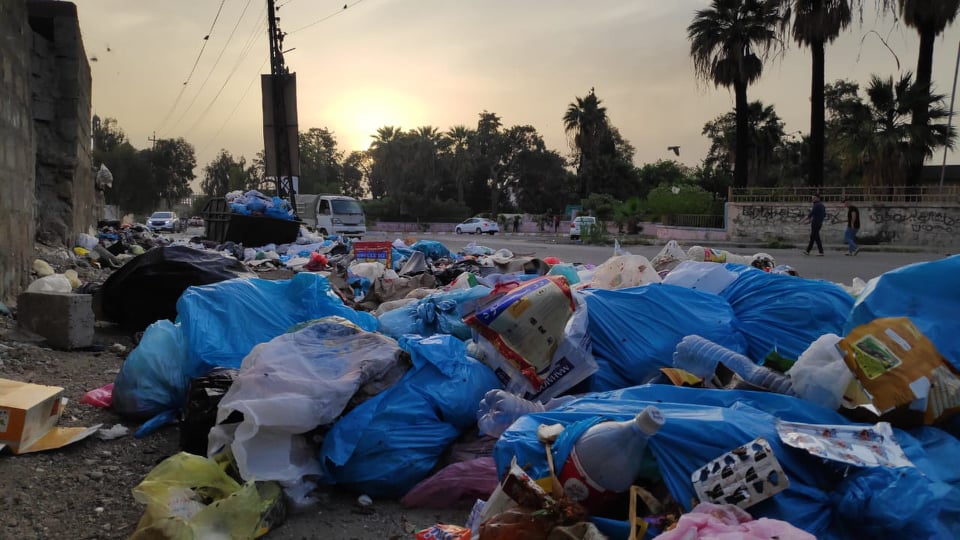
Garbage piles have become an ordinary scene in the daily life of Kirkukis. Photo by Goran Baban.
"I myself and staff of the municipality apologize to people of Kirkuk. We are not the reason behind this. It is the federal government who deal with us in this way."
Zangana said their efforts were useless to get direct fund from the province income just alike other provinces. Only few neighborhoods are cleaned and others left sunk in garbage.
"The current service is limited carried out by municipality equipments. Our capacity is limited compared to the piled waste all over the city beyond our control."
"Our capacity is limited compared to the piled waste all over the city beyond our control."
Kirkuk municipality says 1200 tons were collected on daily bases now came down to only 200 tons. Last February two campaigns were funded to clean 70,000 tons.
Now some people and youngster with three-wheel cargo bikes collect trash from houses and waste it at the entrance of the city where wind spreads it over to the town again for a small amount of money from each house.
Zangana thanked the efforts for funding special campaigns though "it was temporary not for the long-term."
Municipality of Kirkuk in a letter has appealed on the political parties to push Baghdad for the issue as the situation is "threatening."
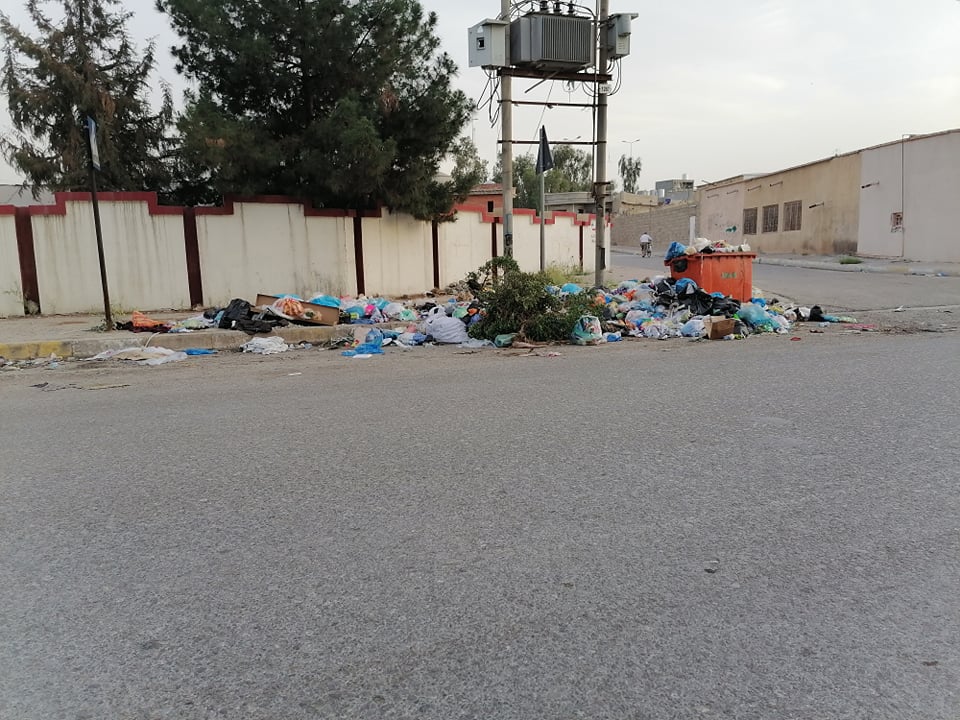
Kirkuk April 2021: The corners in Kirkuk has turned into garbage containers. Photo by Goran Baban
Kirkuk through its five oil wells has produced three million barrels last March generating $195 million American Dollars for Iraq's national revenues while in February it pumped 3.8 for $213M, Iraqi ministry of oil said.
Currently Kirkuk is under control of Baghdad since 2017 with local police downtown while Iraqi army and pro-Shiite militia Popular Mobilization Forces PMF known as Hashid aal-Sha’abi deployed at the outskirts.
The political tension between Baghdad and Erbil left Kirkuk and the disputed territories miss basic public services. Garbage collection is one of the main challenges for people in their daily life in the last years in particular. Power shortage is blamed for low supply by Baghdad compared to the high demand by people for consumption.
Healthcare and education alike other sectors suffer from lack of equipment, building and staff.
Beside the annual budgets for development of provinces, oil-producing provinces are expected to receive a special allocation within 2021 budget yet lack of censorship and vital role of integrity commission cannot put an end to corruption and embezzlement that plagues the war-torn country since 2003, following the ousting of Saddam regime, along with instability generated by years of sectarian and ethnic violence.

